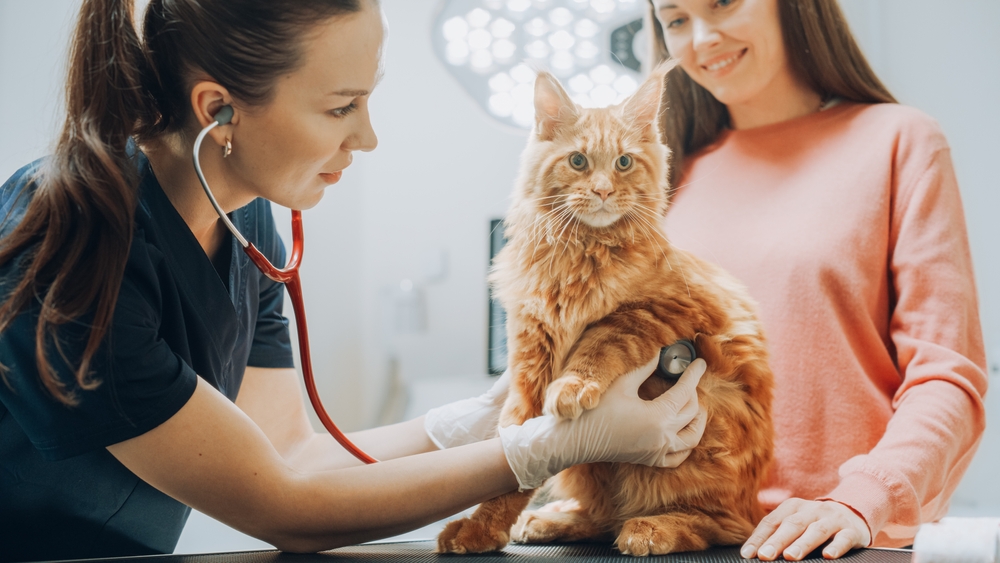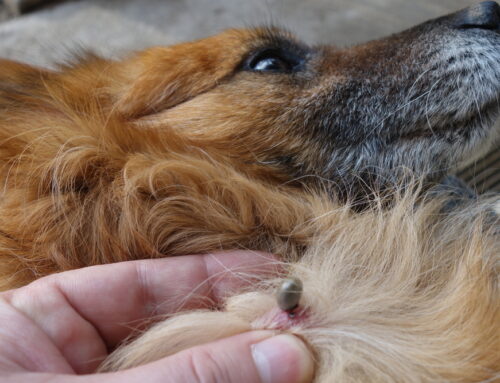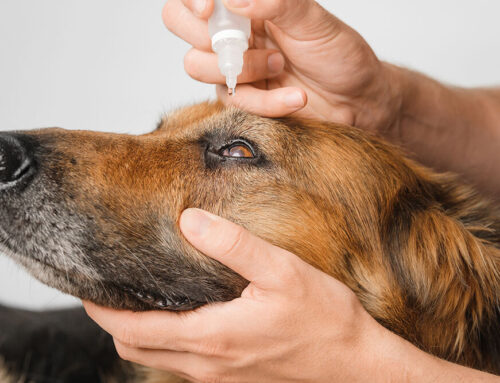As a pet owner, you will do anything to ensure your furry companion stays by your side for as long as possible, and routine wellness care is the best way to positively impact your pet’s lifelong health. With regular wellness examinations, you are proactively protecting your pet against life-threatening infections and disease, which is our Oliver Animal Hospital team’s top priority. We offer information about wellness care examinations and some of the pet diseases that can be prevented.
Preventing dental disease in pets
More than 70% of pets are suffering with some form of dental disease by age 3, which can negatively affect their overall health far beyond causing bad breath. When your pet eats, bacteria in their mouth combine with food particles, and a sticky film (i.e., plaque) forms on their teeth. If the plaque is not removed in a few days, the film hardens and becomes cement-like tartar that traps bacteria in and around the gumline. Dental disease occurs when the bacteria damage a tooth’s supporting structures and cause pain, infection, inflammation, and ultimately, bone and tooth loss. In severe cases, circulating bacteria enter the bloodstream and permanently damage a pet’s kidneys, liver, and heart.
Fortunately, dental disease can be prevented. During your pet’s annual wellness exam, our team will evaluate whether your pet needs a professional dental cleaning. During a cleaning, we clean and polish your pet’s teeth and take dental X-rays to assess every tooth for disease signs and then take any action (e.g., a tooth extraction) necessary. Most healthy pets need a comprehensive professional dental cleaning every one to two years.
We also recommend that you brush your pet’s teeth daily at home to remove plaque from their teeth between professional veterinary cleanings.
Preventing heartworm in pets
Heartworm disease is a serious and potentially fatal disease in pets, caused when a mosquito infected with heartworm larvae bites your pet. The mosquito then infects the pet with the larvae, which mature into adults, and the adults reproduce in your pet’s heart, lungs, and blood vessels. Over time, heartworms can cause severe lung disease and heart failure and damage other vital body organs. Left untreated, the disease is often fatal.
Unless your pet is screened for heartworm disease, visually detecting their illness is almost impossible—which makes prevention critical. Luckily, heartworm prevention for pets is simple, safe, and effective. All pets should receive year-round preventives that are available in monthly, topical, and oral formulas to suit every pet’s preference and owner’s convenience. In addition, long-lasting injectable preventives that provide six months or one year of continuous, effective protection are available for dogs. No treatment is available for cats, so prevention is critical.
For all these reasons, heartworm testing is part of every pet’s wellness care.
Preventing Lyme disease in pets
Lyme disease, which is transmitted to pets by deer ticks, can lead to serious health issues, including joint pain, kidney damage, and neurological problems. When an infected tick bites you or your pet, they transmit bacteria that multiply around the bite site and enter the bloodstream. In the bloodstream, the bacteria can travel anywhere in the body.
To determine whether your pet has Lyme disease, your veterinarian will perform a blood test, although reaching an accurate diagnosis can be tricky, as Lyme disease signs are often vague and identical to many other health conditions. However, you can help reduce your pet’s risk of Lyme disease and other tick-borne illnesses with veterinary-approved tick preventives in topical or chewable forms that defend your pet against fleas, ticks, and other parasites. A Lyme disease vaccination, which your veterinarian can administer at your pet’s wellness exam, is also available for some dogs.
Preventing obesity in pets

Pet obesity is a disease that can lead to a wide range of health problems, including diabetes, joint issues, and a shortened lifespan. However, weight-related issues are entirely preventable and often reversible, and routine wellness care plays a crucial role in managing your pet’s weight. During their wellness exam, our team assesses your pet’s body condition and weight to determine if their weight falls in their ideal range. If your pet is overweight, we will create a tailored weight-loss plan that ensures your pet slims down safely and maintains their appropriate weight.
Routine wellness care is a cornerstone of preventive health in pets, and prevention is always better—and more cost-effective—than treatment. To help keep your pet happy, healthy, and disease-free, schedule their annual wellness care visit with the veterinarian in south Austin at Oliver Animal Hospital.







Leave A Comment